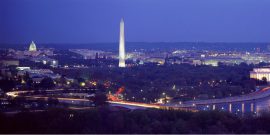In our era of elite polarization, these institutions may themselves become the very sources of the instability that they seek to temper.
Friday Roundup, February 7th
- February’s Liberty Law Forum engages the questions of what is American liberty and what is required to support it. Lead essay by Ted McAllister with responses from Bradley Thompson, (and upcoming) Steven Grosby, Bill Dennis, and Hans Eicholz.
- Getting from aid to enterprise: The next Liberty Law Talk discusses with Michael Miller, director of the Acton Institute’s PovertyCure documentary, the conditions that should guide any approach to assist human flourishing in the poor regions of the world. Frequently missing, Miller highlights, in current interventions is an understanding of how crucial the rule of law, property rights, and markets are in the uplift from poverty, and that frequently, these economic and legal orderings are absent in areas of hardship.
- Studying Lord Acton on political liberty and the problems of democracy: Gerald Mara reviews in our Books section this week Christopher Lazarski’s Power Tends to Corrupt: Lord Acton’s Study of Liberty.
- Pedro Schwartz writing in EconLib’s featured essay ponders the scandal of Machiavelli:
When democracy was restored in Spain I was elected to Parliament as a lonely libertarian in a conservative ticket. I was not cut out for the job and did not stay long. Does this mean that I had not understood and digested the lessons of The Prince?
- Alex Pollock in The American ventures some predictions on the Fed’s next 100 years. Can’t wait. Pollock writes
[T]he authors of the Federal Reserve Act could certainly not have even imagined, let alone expected, what their creation has become in a century. They would have been utterly dumbfounded at a Federal Reserve that:
— Is formally committed to, and is producing on purpose, perpetual inflation.
— Has no link of any kind to a gold standard.
— Thinks it is supposed to, and that it is capable of, “managing the economy.”
— Invests vast amounts in, and monetizes, real estate mortgages.
— Has chairmen who achieve media star status, as for example, “The Maestro.”
— Wields the authority of a unitary central bank, centralized in Washington D.C., rather than being a federal system of regional “reserve banks.”
- Keith Hennessey on Obamacare and the vanishing ladder to the middle class.
- Matthew Franck in the New Atlantis: Plato’s Republic and Our Scientific Regime.
- This summer the Witherspoon Institute’s Simon Center on Religion and the Constitution will offer its third biennial Church and State Seminar, July 28 to August 1, at the Princeton Theological Seminary. This five-day seminar will examine the relationship between religion and politics in the period of the American Revolution, founding, and early republic. The seminar is open to untenured faculty and post-doctoral scholars in history, political theory, law, and religion–and the Institute will consider doctoral candidates at work on their dissertations as well.


